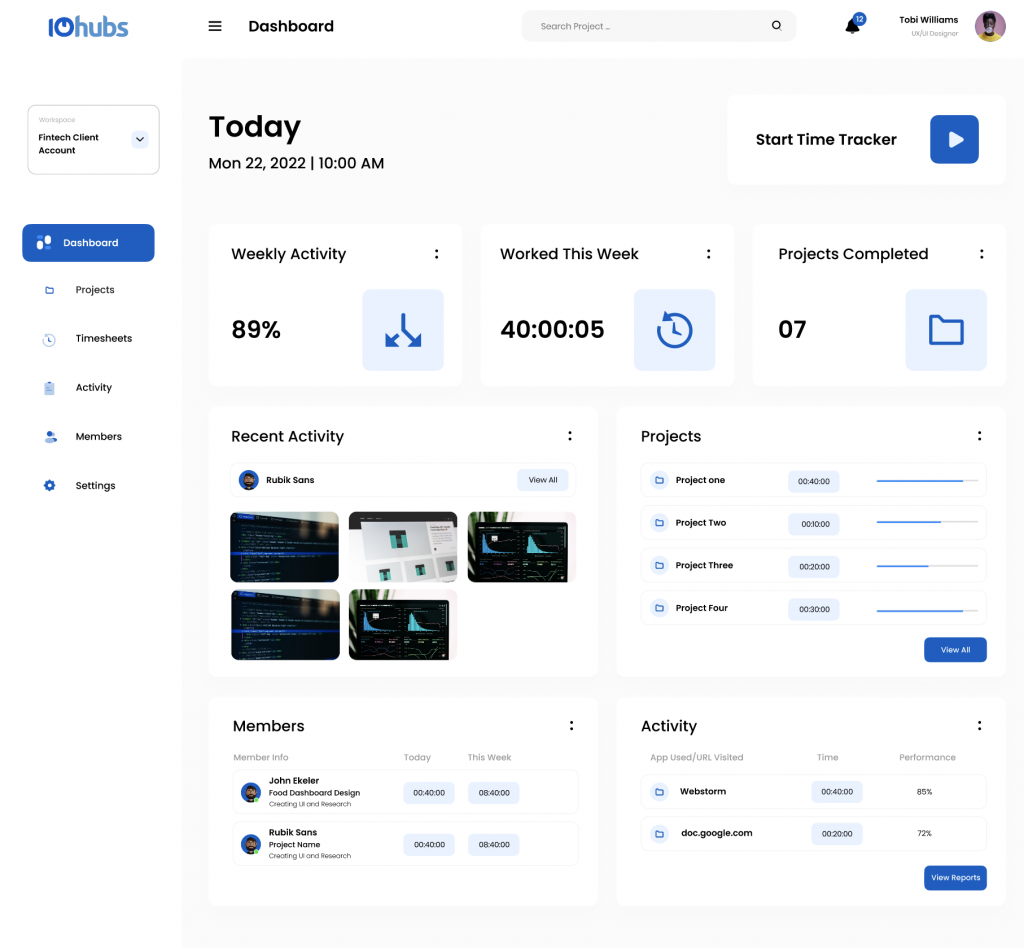
Managing remote software engineering teams used to be a niche problem, but with the increasingly remote work culture, this is fast becoming something every engineering manager should be able to do. Following the 2020 pandemic, more and more people are going remote. Here are some useful straight-to-the-point tips for maximizing the performance of your remote team.
Thankfully, it is now possible to manage remote teams using software tools, achieving great results in accountability and performance. Find out how at the end of the article!
We have identified 6 key areas to pay attention to for managing your engineering team for the best performance. They are:
- Company Culture
- Team Knowledge
- Information Management
- Teamplay
- Individual Commitment
- Management Tool
Below are the 17 hacks sub-grouped into these 6 key areas:
Company Culture
Remote teams function in a different environment than physical teams. This is why distinct, remote-friendly company culture is required. Here are some ways to achieve this:
1. Questioning
Remote teams, if not managed properly, will leave some of your employees feeling left out and excluded. It is important to create an atmosphere where people can ask questions about their jobs, why things are the way they are, and seek clarification on tasks. It is also helpful for your team members to be able to ask “what if?”.
2. Transparency
On one hand, remote teams seem hidden by default. On the other hand, since all communication is done via technology, it is possible to transform your remote company into a transparent organization by leveraging these technological tools. Transparent company culture is clear about terms and conditions, uses open organizational structures, and is open about its goals and reward systems.
3. Access
As much as possible, all non-sensitive information should be accessible to all team members. Managers and supervisors should be accessible to everyone, including interns. Overall, your team members should be free to contact each other.
4. Company Rituals
Company rituals help build a common organizational spirit. Elements that help achieve this include meeting ritual (done before or after the meeting), community mantras and catchphrases to capture company ideals, and company swag (branded items for employees).
Team knowledge
It is important to have a solid knowledge base about the company’s processes and activities. You cannot afford to leave this to chance and time. Ways to train your team include:
5. Seminars
This may entail monthly or quarterly seminar sessions. The goal of such seminars should be to improve the common knowledge of the team on things that are relevant to work and goals, and useful to professional and interpersonal productivity.
6. Tutorials
The use of pre-recorded tutorials is highly helpful. They should be of great quality and well organized (easily searched and adjusted according to preferences). There should be rewards attached to progress, and knowledge of the material should be reflected in the ability to carry out company duties.
7. Wikis
A company wiki with a list of frequently asked questions (FAQs) is particularly useful for large teams but helpful for effective teams of all sizes. Knowledgeable employees (e.g., those who have completed the tutorials) can contribute to the content.
Information Management
Effective communication is the heart of successful remote engineering teams. Here are features to account for:
8. Engagement
Employee engagement is aimed at keeping everyone involved in a common experience of the organization. This can be achieved through team bonding exercises (such as games and virtual hangouts), and one-on-one meetings. It generally involves extra-work interests but can be used as a means for achieving some work-relevant goals.
9. Meetings
Meetings should be short, have a clear agenda and a structure for setting agendas, and the items should be pre-vetted before they’re announced.
10. Feedback
There should be room for feedback from employees during meetings, individually after meetings, and via anonymized outlets like a virtual suggestion box.
11. Instructions
There should be proper documentation of organizational processes and guidelines for executing tasks, generally. Specific instructions for particular tasks should be clear and thorough. Roles should be clearly defined, and undefined roles should be identified.
Teamplay
Here are ways to enhance collaboration in remote teams:
12. Cooperation
Encourage cooperation and team spirit by emphasizing this in words and action. Teams should be as small as possible for individual efforts to count. Encouraging the habit of helping others.
13. Competition
Encouraging open competition toward the common goals of the organization, organize hackathons with attractive rewards to solve useful problems, and identify those responsible for desired results.
14. Time zones
To manage multiple timezones for remote software engineers: Allow flexible work hours, require minimal contact hours, and use online tools to track timezones of those involved in tasks. Permit a broad time gap during communication, and use pre-recorded material where possible.
Individual Commitment
Great teams are made of committed individuals. Here are ways to manage individual commitments to your remote team:
15. Expectation management
Manage employee productivity in a preventive manner by setting realistic goals, and applying accurate risk assessment. During execution, track goals honestly and make room for adjustments based on new information.
16. Motivation
Hire self-starters and encourage proactive execution. Pay competitive salaries and include performance-based rewards.
Management Tool
17. Technology
Today, there are smooth ways to manage remote teams from across the globe in a largely automated system, from the comfort of your home office, achieving even more in performance and accountability than many in-person teams. You can keep track of what your employees are working on, how much time they spend on it, and who is responsible for the work.
Here’s some good news: you can get access to such a software tool for managing and tracking the performance of remote engineers at no extra cost with ioHubs!

ioHubs offers thought partnership in premium talent acquisition services, completing the technical recruitment process on your behalf in an average of four (4) weeks. The ioHubs process applies best practices, leveraging an organic network of experienced engineers to find your ideal candidate in alignment with your specific requirements. Reach out today to get started.